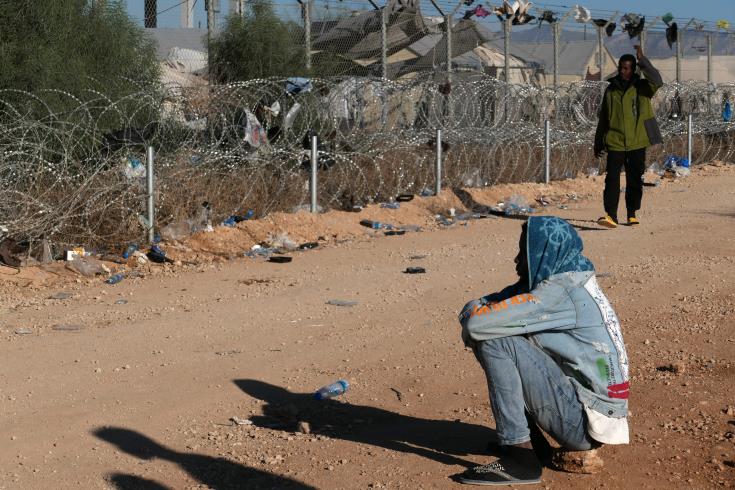As thousands of people from the Middle East and Africa cross the treacherous waters of the Mediterranean every day in search of a better life, some are bound to end up on our shores.
Cyprus is at the crossroads of illegal migration, and thousands flock to the island annually, mostly through illegal crossings from the Turkish-occupied north.
According to recent statistics, more than 17,000 have entered Cyprus illegally this year, and the rate of newcomers is rising.
Although tens of millions of euros are spent yearly on policing, security, and border patrol, including wire fencing and electronic surveillance, the problem is only rising at an alarming rate.
At detention and hosting centres, people are crammed together in small areas, sometimes in appalling conditions, because authorities cannot cope with the influx.
Those seeking asylum are only part of the problem.
Most are trying to find ways to move to continental Europe, where they expect to find better living and working conditions.
The EU must provide tangible incentives for European manufacturers (clothing, shoes, building materials and other consumer products) in the countries where migration is originating.
Setting up manufacturing complexes in these countries on an industrial scale will provide huge benefits to European manufacturers to recruit, train and employ tens of thousands of people to produce goods that we import from third countries and sometimes we can’t find enough of them.
Only then can we experience a real change and offer greater opportunities to those developing countries for trade, political and social cooperation.
But on the national level, and for Cyprus in particular, the government should stop providing monetary benefits and offer free basic clothing, medical care, and food rations instead.
Giving free money is like lifting the incentive to work.
At the same time, people who can work should be offered jobs in agriculture, farms and selected industries that experience labour shortages, such as catering and hotels.
However, they should only receive a fixed amount similar to that of other third-country workers that come to Cyprus as housemaids and carers of older people.
Employers should provide decent shelter, free internet, and food.
A small amount of money should be charged to employers and employees as immigration tax to cover the taxpayers’ cost of managing migration.
Both sides will benefit from this arrangement the government will make it possible at some cost.
These people should be allowed to work for a certain period and be given the option to go back to their countries.
Working at a lower wage rate, like housemaids, is helping the migrants, their employers and the government.
Why should these asylum seekers be paid as European workers anyway?
It’s like incentivising them to immigrate illegally to find lucrative jobs.
That’s why they pay huge amounts to traffickers and even risk their lives trying to get here, by sea or over land.
Because they know that they will not only recover the cost of their investment but also turn a good profit. At least, that’s the expectation, anyway.
It is a dangerous narrative fuelled by our collective inability to offer economical solutions to an economic problem.
The European Parliament and the European Commission should look into more radical and effective ways in the field of economics to deal with modern immigration.
The alternative will not be just social unrest and discontent by citizens.
Sooner or later, Europeans will start immigrating to Australia, Canada, and the US.
The exodus has already begun.










